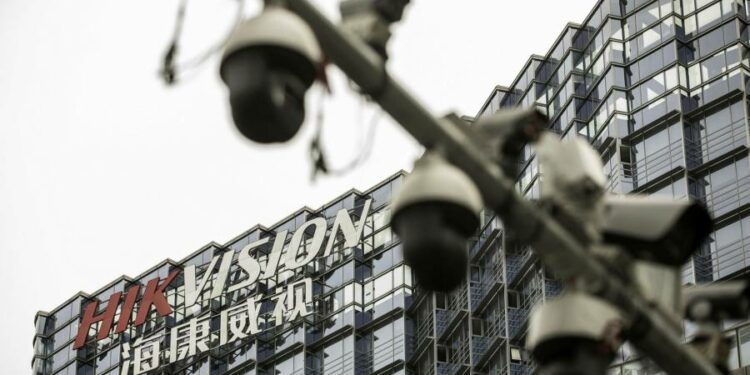Hikvision’s share price fell 10 per cent on Thursday after Washington moved to impose tough sanctions on the Chinese surveillance camera maker accused of facilitating human rights abuses.
The company’s Shenzhen-listed shares finished trading on Thursday, still down by the maximum daily limit at Rmb38.24 ($5.79), as Chinese markets returned from a three-day holiday.
The Financial Times reported this week that the Biden administration was preparing to target the world’s largest manufacturer of surveillance equipment, according to four people familiar with the discussions, who said a final decision has not been made.
The move would make Hikvision the first large Chinese technology group to be hit with human rights-related sanctions from the US and could have wide-ranging implications for the countries and consumers that use its cameras.
Hikvision said in a statement: “The potential action by the US Government, as reported, remains to be verified.
“We believe any such sanction should be based on credible evidence and due process. We look forward to being treated fairly and without bias.”
Washington has accused the Hangzhou-based group of enabling repression and supplying equipment to detention camps in the north-western region Xinjiang, where Chinese authorities have detained an estimated 1mn Uyghurs and other ethnic minorities.
Beijing has denied allegations of abuses and defended the existence of the camps as “vocational education and training centres”. Both the Trump administration and the Biden administration have accused it of “genocide”.
Hikvision posted a total revenue of 81.42bn yuan ($12.3bn) last year, with year-on-year growth of 28.1 per cent, and 22bn yuan ($3.5bn) in the first quarter of this year on the back of strong demand for surveillance technology to create “safe” and “smart” cities at home and abroad.
The Trump administration in 2019 put Hikvision and other Chinese entities including Huawei on a blacklist that prevented American companies from selling them equipment over what it viewed as potential security threats.
It also required companies that provided Washington with goods and services to prove that they did not have commercial ties with those Chinese companies in order to secure contracts with the US government.
President Joe Biden last year extended the ban on US investments in dozens of Chinese defence and surveillance tech companies in a bid to prevent China from using US capital to undermine national security.










